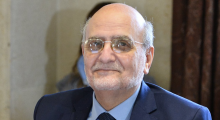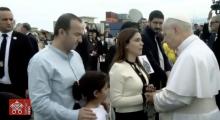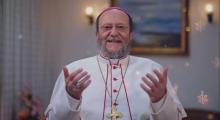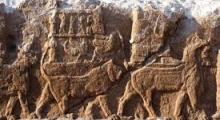Issued by the Catholic Center for Studies and Media - Jordan. Editor-in-chief Fr. Rif'at Bader - موقع أبونا abouna.org
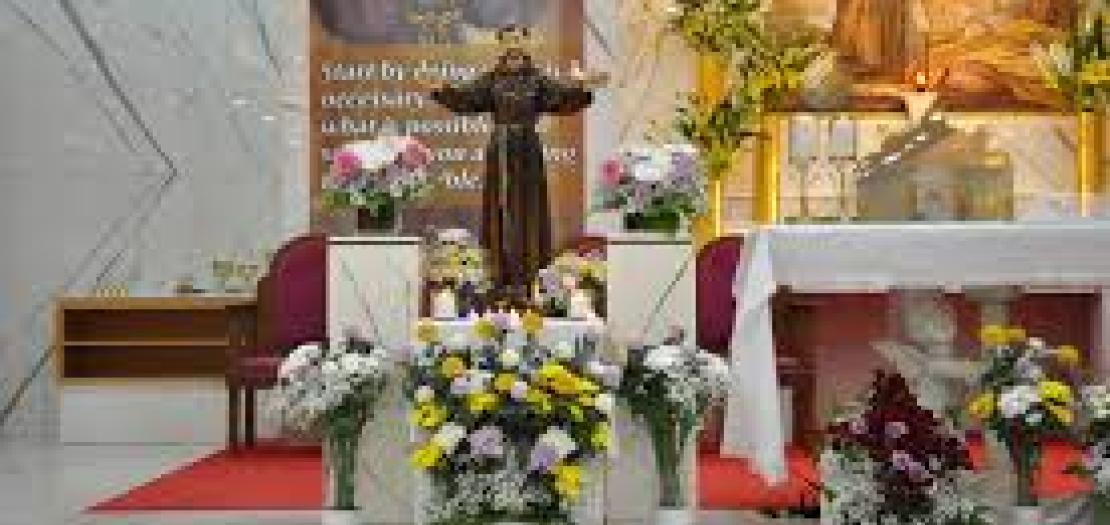
The Transitus of St. Francis of Assisi—commemorating his passing into eternal life on October 3, 1226—was solemnly celebrated at St. Francis of Assisi Church, Jebel Ali.
The celebration brought together more than 40 Franciscan friars from across the Arabian Peninsula (Apostolic Vicariates of Northern and Southern Arabia), including bishop emeritus Paul Hinder, joined by diocesan priests, religious, and lay collaborators. The Mass was presided over by Fr. Michael Fernandes, Custos of the Capuchin Custody of Arabia. The atmosphere was marked by fraternity and reverence, highlighting the special role of the Franciscan charism in the life of the Church in the region.
“Sister Death”
“In Franciscan spirituality, celebrating the Transitus highlights St. Francis’ joyful embrace of ‘Sister Death,’ and his vision of death not as defeat but as fulfillment of life in God,” Fr. Michael explained to the AVOSA website. “It reminds Franciscans to live every day in readiness, in simplicity, humility, and trust in God.”
Celebrating this feast in the 800th anniversary of the Canticle of the Creatures and the Jubilee of Hope, he added, “emphasizes Francis as a prophet of peace, ecology, and fraternity. It strengthens the Franciscan witness to hope: that death is not an end but a doorway, and creation itself sings of resurrection.”
A homily that inspired
In his homily, Fr. Michael reflected on the journey of St. Francis and offered lessons that serve as “a spiritual roadmap for every disciple” even today.
He stressed that God’s grace meets us precisely in our brokenness and calls us forward in renewal. Suffering and struggle, he underlined, can become places of encounter with God: “God speaks through suffering. The Cross transforms pain into meaning, and what we endure in faith can open us to deeper love.” Holiness, he said, “is not perfection, but a daily ‘yes’ to God’s love.” He also recalled the central place of prayer, which is “the heartbeat of discipleship and the source of joy.”
A moment of communion and fraternity
The Transitus liturgy is rich with Franciscan symbols of light, prayer, and songs. “On this day, the Franciscan friars renew their vows, expressing fidelity to the Franciscan way of life, inspired by St. Francis’ own total surrender to God,” Fr. Michael highlighted.
It is a moment to “re-commit to the evangelical counsels of poverty, chastity, and obedience” and “signifies spiritual rebirth, much like Francis’ passing was a passage to eternal communion.”
A Fraternal Table
The celebration concluded with a fraternal meal, where the friars continued their conversations in a spirit of joy and thanksgiving. Stories, laughter, and shared hopes filled the room, embodying the Franciscan spirit of fraternity that extends beyond the liturgy.
This annual gathering has become an anchor point for the Capuchin presence in Arabia, offering space for dialogue on pastoral challenges, nurturing vocations, intercultural fraternity, and the ongoing mission of evangelization and service in the two vicariates.
The Franciscan presence in the Arabian Peninsula
This land has historically been entrusted by the Holy See to the pastoral care of the Friars Minor Capuchin. They form a vibrant missionary presence, serving in parishes, schools, chaplaincies, and outreach ministries, carrying forward the Franciscan charism in the heart of the Arabian Peninsula.
The feast of the Transitus “invites believers in this region to live with hope amid the challenges of migration, work, and distance from home,” Fr. Michael said. “It reminds the faithful that holiness is possible in ordinary life through simplicity, fraternity, and care for creation. The Transitus inspires courage to face trials with peace, trusting God’s providence as Francis did. It reassures the faithful that death, suffering, and struggle are not the last word – Christ and resurrection are.”


